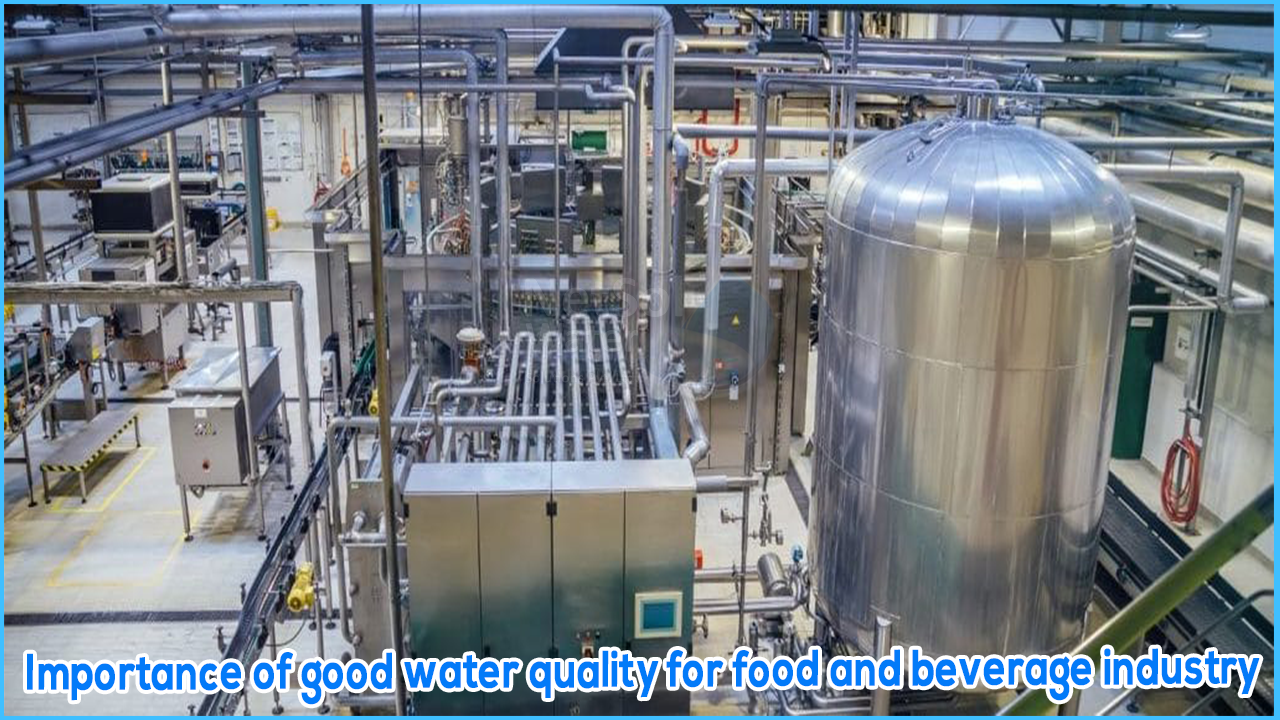 Food production frequently requires the use of water that is why there is a direct link between water quality and food safety. Water is a valuable resource in the food sector. Water is employed in many different stages of food manufacturing and preparation, not just as an ingredient. Food preparation and processing, in essence, necessitates the use of water. People often take water for granted since it is such an evident truth. Furthermore, the impact of water quality on food items and other processes in the food industry is poorly understood by a large number of individuals. This lack of understanding is one aspect that contributes to water mismanagement, equipment malfunctions, maintenance concerns, revenue loss, product quality degradation, and, most critically, food safety.
Food production frequently requires the use of water that is why there is a direct link between water quality and food safety. Water is a valuable resource in the food sector. Water is employed in many different stages of food manufacturing and preparation, not just as an ingredient. Food preparation and processing, in essence, necessitates the use of water. People often take water for granted since it is such an evident truth. Furthermore, the impact of water quality on food items and other processes in the food industry is poorly understood by a large number of individuals. This lack of understanding is one aspect that contributes to water mismanagement, equipment malfunctions, maintenance concerns, revenue loss, product quality degradation, and, most critically, food safety.
Water can be contaminated in a variety of ways and at any point along the supply chain, from the water reservoir to the end user. Food can be contaminated with physical, chemical, or biological factors during production, rendering it unhealthy. Water that has been contaminated with a variety of pathogenic bacteria can pose a threat to human and animal health. This is a significant challenge in terms of food safety. This is why water quality is very crucial in food and beverage industry.
Pathogens and pollutants that would otherwise be hazardous to human health or unsightly are removed during water treatment. Depending on the source water, several treatment methods are used. However, to bind dirt and form heavy particles that fall to the bottom of a water storage tank, an absorbent ingredient is usually added to the water. After that, the water is filtered again to remove even smaller particles. Finally, a little amount of disinfectant (e.g. chlorine) may be added to destroy any remaining germs at a level safe for human consumption.
IMPORTANCE OF WATER QUALITY IN THE FOOD AND BEVERAGE INDUSTRY
Impacts of Water Used in or Touched by the End Product Health of the Consumer
Consumers, of course, want their food and beverages to be free of contamination. As a result, all water that comes into contact with any aspect of the food manufacturing process (ingredients, packaging, bottles, pipes, and food processing equipment) must pass strict purity tests. According to WHO guidelines, any water used in the preparation, washing, or processing of food must be disinfected to high drinking-water standards using a method like industrial-grade reverse osmosis.
A plant producing food or drink must have rigorous sanitation requirements across the board, regardless of what touches the ultimate consumer product. Even if those goods are washed outside of the food production area, this includes water used for washing packaging equipment, storage, and transportation vehicles.
Efficient Utility Means Clean Water
Impurities of any kind can cause inefficiencies in the food and beverage sector, even if they don't contact the final product. Water used in boilers and cooling towers, for example, must also fulfill high purity criteria, with a low concentration of concentrated solids passing through these systems. Impure water can accelerate wear and tear, corrosion, and scale buildup, reducing efficiency, causing costly downtime, and increasing repair and maintenance costs. Because the water utilized in these systems is clean, a high-quality industrial reverse osmosis water purification system can increase efficiency, decrease downtime, and lower repair and maintenance costs.
Food and beverage manufacturers have more control by reusing water
With today's uncertain water supply, it's critical for food and beverage facilities to have an industrial water purification system that can convert feed and waste into purified water that can be reused safely for a range of purposes. Closed Circuit Reverse Osmosis (CCRO), a smart, autonomous, and advanced industrial reverse osmosis system, enables food and beverage firms to reclaim water and minimize water waste much beyond the ability of prior industrial reverse osmosis systems. This allows businesses to have significantly more control over their water supply, water costs, and total operational costs.
CONCLUSION
Water is essential for food safety operations; hence the food business must have access to it. Water quality and its impact on food safety are, unfortunately, little known. Water mismanagement, equipment operation and maintenance concerns, loss of income, food product quality, and safety are all consequences of this deficiency or lack of awareness about the importance of water quality in food production.
As a result, it's critical to educate those involved in food production and safety about the significance of water quality. Apart from that, consumers should be educated about how water quality issues at various stages of food production can jeopardize the end product's safety.



